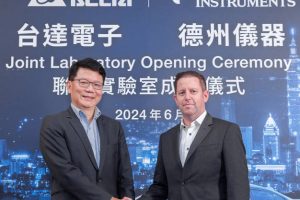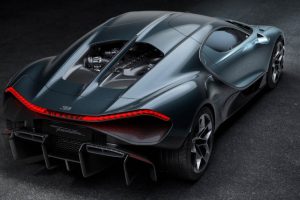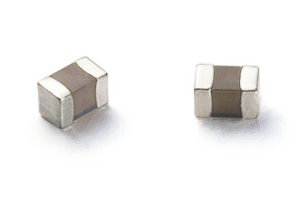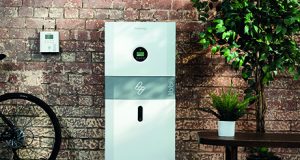
It was founded in 2016 by Lee Sutton and Jordan Brompton, now its CEO and chief marketing officer respectively. It has grown to 407 people in the few intervening years, and has opened offices in Australia, Germany, Ireland and The Netherlands.
“We quickly outgrew our UK premises and opened new HQ offices in Stallingborough, Lincolnshire, with plans for a second, 45,000ft2, manufacturing facility already underway,” said the company.
‘Eddi’ was the first of its products: a ‘diverter’ that diverts excess power from a domestic solar photovoltaic installation to heat water instead of feeding it into the national power grid.
This was introduced in September 2017 and was closely followed by the company’s Zappi home electric vehicle charger. Now in its second generation, Zappi is compatible with local solar and wind generation, and can deliver between 1.4kW and 7kW to the vehicle from a standard 32A domestic circuit, or 4.1kW to 22kW can be delivered by a three-phase supply Zappi.
Harvi is another product, also introduced in 2017, which simplifies wiring when a Zappi and an Eddi are to be installed together.
So far the company has shipped more than 300,000 devices.

Called Libbi, its top half (pictured above) contains a 3.68kW inverter while on the bottom is a 5.1kWh battery, to which three further batteries can be added for a total of up to 20.4kWh. With more than 5.1kWh, the inverter is upgraded to 5kW. The controller box (top left), is also included.
“Around one million homes in the UK now have solar panels, and as electric vehicles sales continue to rise and the transition to electric heating accelerates, we know that there will be huge growth in domestic renewable generation and demand for battery storage to maximise it,” said Brompton.
The inverter and battery controller make decisions about when the unit provides electricity and when it stores it, automatically based on how energy is used and how much is generated by local solar panels.
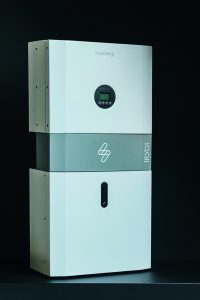
Some of these facilities require help from its EV charger or its diverter.
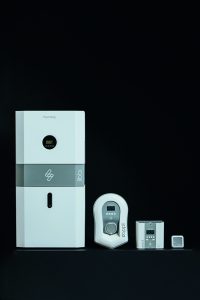
“Unlike other home storage batteries, Libbi will allow customers to prioritise loads as they wish within the myenergi app, for example to avoid the battery discharging automatically when they plug in their electric car or, conversely, to charge their EV directly from their home battery when their Zappi is in Eco+ mode.”
An optional black-out back-up function the Libbi battery can power a dedicated circuit within the house during a power cut.
The company claims that an installation of its Eddi diverter, Zappi charger and Libbi battery can raise the average fraction of on-premises photovoltaic generation that a household can consume “closer to 100%”, adding: “A 4kW domestic solar array would typically generate around 3,500kWh of electricity per year, enough energy to drive more than 10,000 miles in an electric car, so if more of this energy can be stored and used by the household, it will have significant benefits in decarbonising vehicles and homes.”
 Electronics Weekly Electronics Design & Components Tech News
Electronics Weekly Electronics Design & Components Tech News

